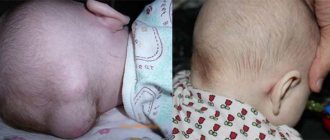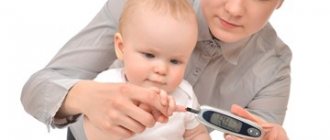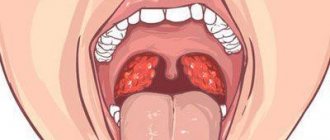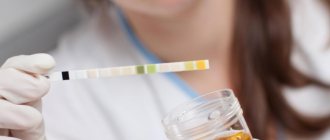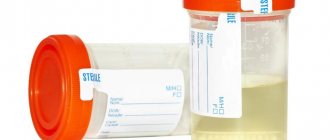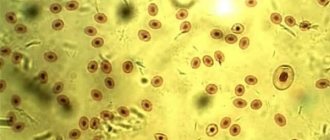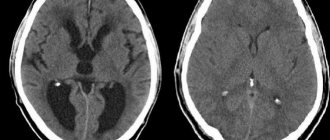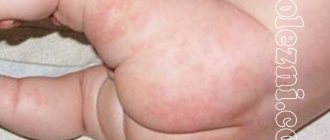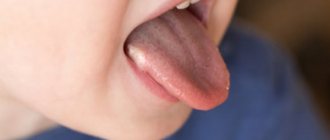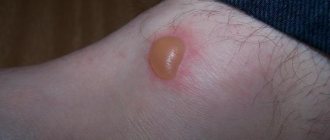Pain when urinating in children is quite common. This phenomenon can occur in children of any age, even infants.
Parents can suspect a problem of painful urination in a child under 1 year of age based on unusual behavior: moodiness, strong crying before and during the process of emptying the bladder, tucking in the legs.
At an older age, everything is much simpler; the baby can show the painful area and describe the sensations. Complaints cannot be ignored, since there is a high probability of developing certain pathologies of the genitourinary system.
Main reasons
There are a number of reasons why a child may experience pain during urination:
- urethritis;
- cystitis;
- pyelonephritis (inflammation of the renal pelvis);
- stone formation;
- vesicopelvic reflux;
- inflammation of the vulva;
- presence of a foreign body.
The catalysts for the above diseases are: weak immunity, severe hypothermia, inflammation in the body. Let's look at each reason in more detail.
Urethritis
Main symptoms of the disease:
- pain syndrome;
- burning sensation;
- severe pain in the process;
- increased urge;
- hyperemia;
- itching of the external genitalia in girls.
Causes of the disease:
- hypothermia of the body;
- insertion of a catheter and other medical instruments into the urethral canal;
- rare diaper changes;
- decreased body reactivity.
Cystitis as a cause of pain
Symptoms of the disease in acute form:
- frequent urination (up to 3 times per hour);
- enuresis;
- false desire for evacuation;
- incomplete transparency of urine, presence of purulent discharge and mucus in it, unpleasant odor, possible presence of blood;
- a feeling of pain in the abdomen, radiating to the groin area (may intensify when the bladder is full);
- elevated temperature.
In chronic cystitis, the clinical picture is smoothed, complaints are irregular, and the intensity of symptoms is low or moderate.
Pyelonephritis
This pathological condition is divided into 2 forms:
- Chronic – characterized by frequent relapses over 6 months, cannot be completely cured.
- Acute - develops within 14-21 days, with the right treatment regimen it is completely cured.
The main symptoms of kidney inflammation:
- increased body temperature of the child;
- fever;
- migraine;
- weakness;
- pain syndrome in the lumbar region;
- color change in urine (turbidity), specific smell.
Depending on the concomitant illness (urethritis, cystitis), the child may develop urinary incontinence, urinary retention, and a feeling of pain when urinating. Since children sometimes do not understand the location of the pain syndrome, there may be complaints of discomfort in the umbilical area, sides, and lower abdomen. When changing position, the pain does not go away, but subsides when warming up.
The cause of pyelonephritis is an infection that penetrates the kidneys in 3 ways:
- Ascending. The pattern of infection in this way is as follows: infection of the urethral canal, then the bladder, then urine with infection begins to flow into the ureters, which causes inflammation of the kidneys.
- Hematogenous. When inflammatory diseases appear in the gastrointestinal tract and respiratory system, together with the bloodstream, the infection moves to the renal pelvis, where it multiplies and provokes pyelonephritis.
- Lymphatic. Infection occurs due to disruption of lymphatic drainage (diarrhea, constipation, infection of the intestinal tract).
Urolithiasis, foreign body penetration
Characteristic signs for ICD:
- lumbar pain during urination;
- hematuria;
- desire to vomit;
- moodiness;
- increased excitability of the nervous system.
The presence of stones can be determined using x-rays and analysis of urinary fluid for microelements. For children, special therapy methods are provided to dissolve and remove stones without pain.
Sometimes foreign objects, for example, hair, particles of something, get into the child’s urinary tract. In this case, pain manifests itself in the urethra during emptying and certain postures.
Vesicopelvic reflux (backflow of urine from the bladder into the ureters)
This disease is the result of advanced cystitis. Main causes of reflux:
- Damage to the organ by infection , which causes it to work incorrectly and throw urine in one direction.
- Improper functioning of the sphincter in the area where the ureter enters the bladder due to a renal calculus. The stone increases the sphincter, after which the muscles do not compress tightly, and a reverse cast occurs.
- Damage to neurogenic impulses - the signal does not reach the muscle in its original form, which affects the relaxation of the vesicoureteral sphincter and, consequently, a malfunction in its activity.
By consulting a doctor in a timely manner, the disease can be completely cured, otherwise complications may begin and kidney function will be completely disrupted. Symptoms of reflux in babies:
- sharp unbearable pain in the lumbar region during urination;
- repeated urge to go to the toilet immediately after the first bowel movement (usually painless);
- child's fear of writing.
Vulvitis
Inflammation of the external genital organs in girls is accompanied by increased urination and pain, since in addition to the vulva, hymen and labia, the outer part of the urinary tract becomes inflamed. Symptoms of vulvitis:
- swelling of the mucous membrane;
- burning sensation;
- feeling of itching;
- pain during the process due to urine entering the damaged mucosa;
- atypical behavior.
Treatment
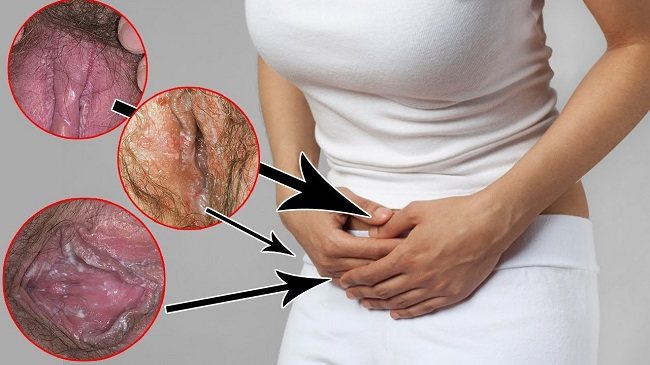
It involves not only local treatment of ulcers, but also the fight against the underlying disease. Ulcers that occur due to syphilitic, chlamydial and some other infections are treated with antibiotics. Depending on the type of pathogen, the following medications are used:
- Penicillin;
- Ecmonovocillin;
- Cephalosporins (Tarivid, Ceftriaxone).
Allergic manifestations require the use of antihistamines orally (Zodak, Loratadine, Claritin, Cetrin). Screen-Cap, Afloderm, Fenistil are used as external agents.
Among the traditional methods, baths with potassium permanganate or medicinal herbs (chamomile, celandine, viburnum) have a good effect. In addition, it is necessary to exclude external irritants (condoms, hygiene products, soap).
Candidiasis is treated with antifungal drugs. Creams, ointments, suppositories (Clotrimazole, Pimafucin) are used topically. If the disease is chronic, it is advisable to use systemic medications (Diflucan, Fluconazole, Mycostatin).
Specific local medications (Spregal, sulfur ointment) will help treat scabies.
When treating herpes, antiviral drugs (Acyclovir) of local and systemic action are used. Interferons (Viferon, Kipferon) also have a good effect.
Neoplasms are treated by oncologists using chemotherapy and radiation therapy.
If pain is present, painkillers are prescribed (Diclofenac, Ketonal, Movalis, Analgin, Ibuprofen). For any of the pathologies, it is useful to take a course of vitamins to strengthen the immune system. Particularly important are B vitamins, ascorbic acid, tocopherol, and retinol acetate.
Causes of pain syndrome in infants
Infants cry due to pain during/at the end of urination for several reasons:
- crystalluria - characterized by painful urine output due to undissolved salt crystals passing through the urethra, damaging the organ mucosa;
- phimosis - narrowing of the foreskin opening in newborn boys;
- synechia - fusion of the labia in infant girls.
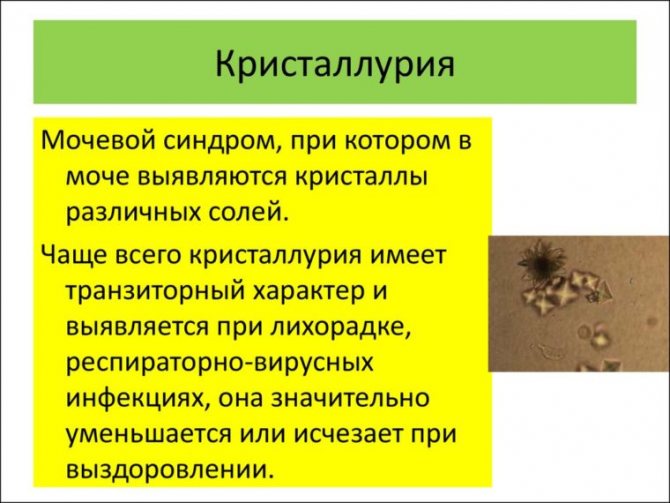
If the baby begins to cry before passing urine, parents should visit a doctor soon to determine the cause.
Causes of pain in infants
The main reasons for the development of discomfort during urine output in infancy:
- Synechia of the labia. A condition in which girls' genitals become fused.
- Phimosis. Pathology manifested by the inability to expose the head of the penis.
- Crystalluria. The presence of large crystals in the urine that damage the walls of the urethra.
Synechia and phimosis can be detected by visual examination, crystalluria - only through laboratory testing.
Feeling of pain when emptying the bladder in adolescents: characteristics of both sexes
In teenage boys, pain during urination is associated with structural features of the genitourinary system. In children under 2 years of age, a cavity forms between the head of the penis and the foreskin, which can grow together. This may be why going to the toilet causes discomfort and pain, which disappear after the action is completed.
Another cause of pain is balanitis and balanoposthitis (inflammation of the head of the penis and the fold that covers it). If intimate hygiene is not observed, these parts are affected by fungus and bacteria, causing discomfort.
The causes of pain in little girls and teenage girls are infectious pathological conditions of the genitourinary system and cystitis. Since the urethra in girls is wide and short, it is not difficult for infections to enter the genitourinary area.
Diagnostics
A child has a stomach ache and diarrhea - what to do with a baby
Symptoms of cystitis and other pathologies that cause painful urination appear differently depending on the gender of the child. The fact is that the structure of the genitourinary system in boys and girls is significantly different.
Symptoms in girls
Since the main reason why it may be painful for a child to write is cystitis, it is better to consider the symptoms using the example of this pathology. Signs of cystitis in a girl are as follows:
- Itching and burning when urinating.
- Pain in the lower abdomen.
- False urge to go to the toilet.
- Frequent urge with a small amount of urine coming out.
- Cloudy urine, possibly mixed with pus or blood.
- As a consequence of these symptoms - restless behavior, irritability, sleep disturbance.
- Unpleasant smell of urine.
As for other diseases, the symptoms in girls may be as follows:
- Redness and swelling of the labia, burning, itching when urinating, presence of discharge (vulvitis, thrush);
- Complete or partial gluing of the labia, as a result of which the outflow of urine is disrupted (the girl strains when trying to go to the toilet, and may change the direction of the stream).
Symptoms in boys
In boys, the signs of cystitis are similar:
- Frequent painful urination.
- Passing a small amount of urine.
- Sharp pain when urinating.
- False calls.
Symptoms of pathologies that can cause pain when urinating in boys are as follows:
- With phimosis (this condition implies that the head of the penis is not separated from the foreskin), redness in the area of the head of the penis, slight swelling, accumulation of urine and smegma, and pain at the beginning of urination are observed.
- Itching and burning, the presence of discharge, as well as blood in the urine are standard signs of urethritis (occurs as a result of injury, infection in the urinary system).
- If after bathing procedures the detergent remains on the foreskin of the penis, burning and pain may occur during urination immediately after taking a bath.
- Swelling of the head and foreskin, as well as burning, pain, and enlarged lymph nodes in the groin area are symptoms of posthitis or balanitis. These pathologies develop under the influence of fungus, infections, and are also a consequence of advanced phimosis and non-compliance with hygiene standards.
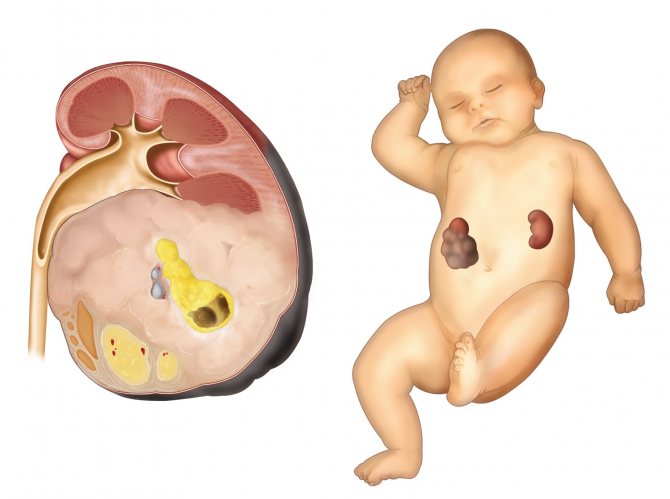
Kidney stone disease
Other symptoms
The feeling of pain in a baby after urination is mainly associated with infectious damage to the organs of the system. In addition to pain, other symptoms should be taken into account:
- presence of blood in urine;
- whether the volume of urine has decreased;
- child complaints about incomplete removal of urinary fluid from the bladder;
- discharge from the urethra;
- complaints of burning during the process;
- specific smell of urine;
- frequent urge;
- temperature;
- weakness;
- feeling that the genitals are baking.
Household reasons
There are situations in which it hurts a child to pee not because of illness or hypothermia, but for quite ordinary reasons. Domestic reasons include:
- mechanical injury to the mucous membrane, especially for girls;
- constant stress, it may become painful for a child to pee if he is often scolded for wet pants, in this case a psychological factor is triggered;
- getting soap on the genitals can cause pain when urinating, which is caused by irritation of the mucous membrane.
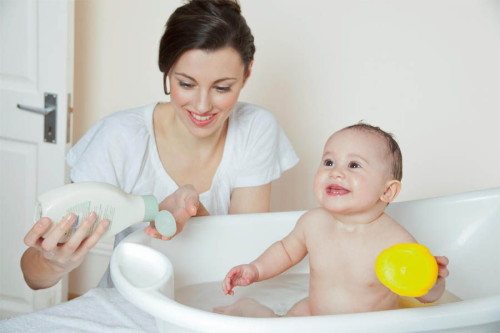
Discomfort due to everyday reasons is quite rare and goes away on its own as the factor causing the pain is eliminated.
Ways to detect pain during urination in a child
Sometimes it is difficult for parents to determine the cause and understand that something is wrong with the child. This is especially difficult if the baby is a newborn or is not yet a year old. In the absence of failures in the genitourinary system, the child is completely calm. If there are deviations in the process of urination, he will begin to cry, scream, be capricious, and sharply move his legs and arms.
Children 2 years of age in the process of urinating, feeling pain, begin to cry and strain hard. Closer to 3 years, the baby is able to point to the location of the pain, be afraid and refuse to go to the potty. Older children complain to their parents about feeling pain, show an area of discomfort, and refuse to write. Teenage children show the location of the pain, describe its nature, and talk in detail about their well-being.
What to do if you suspect a disease?
After determining the cause of pain during bowel movements, the attending physician prescribes therapy. Therapeutic measures are aimed at eliminating the inflammatory process and removing accompanying symptoms.
| Cause of pain in a child when passing urine | Medical measures to solve the problem |
| Blocking inflammation | Antibacterial, antiviral drugs Sitz herbal baths Immunomodulatory agents Bed rest Drinking regime |
| Presence of stones | Taking herbal medicines that promote the breakdown of stones and their subsequent removal. |
| Foreign object | Removing a foreign body Taking antibiotics Douching |
| Relux | Surgical intervention - fixation of the ureter. The operation eliminates the spasm and eliminates the backflow of urinary fluid. |
Diagnostic measures
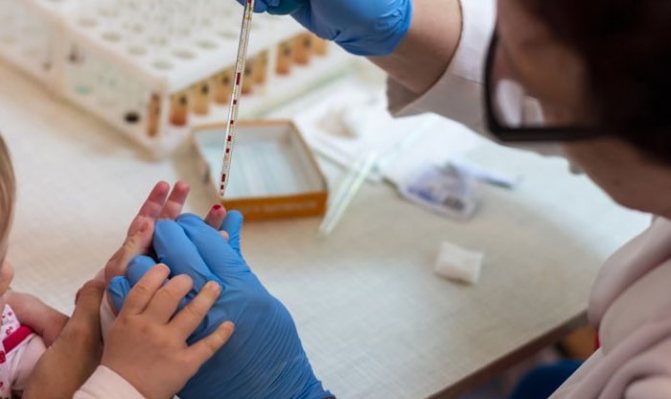
To prescribe an adequate treatment regimen, it is important for the doctor to know what triggered the problem and caused such symptoms. To do this, the child will have to undergo a series of diagnostic tests, which include:
- general blood and urine analysis;
- examination of urine samples using the Nechiporenka method;
- culture for the presence of bacterial pathogens;
- X-ray examination of the pelvic organs;
- Ultrasound diagnostics.
If pain after urination in children is caused by a bacterial infection, a blood test will show leucocyturia and erythrocyturia. The same thing will happen in the urine test results. In addition, bacteriuria is observed in urine during inflammation, and the number of casts and protein is exaggerated. If stones have formed in the kidneys, on an ultrasound the doctor will see an increase in the pelvis of the paired organ.
What can you expect?
By ignoring therapeutic measures, serious complications subsequently develop. In girls, inflammation of the urethra is at risk of diseases in the future:
- cystitis;
- cervicitis;
- nephritis;
- inflammation of the pelvic organs.
Untreated urethritis can provoke infertility in the future as a result of the appearance of adhesions, deformation of pipes, and other organs as inflammation progresses against the background of a weak process.
Inflammation of the bladder can be complicated by the fact that the infection penetrates from the mucous membrane into the muscle tissue, which disrupts the functioning of the organ. Treatment for this complication usually requires surgery. In addition, vesicopelvic reflux may develop as a separate disease.
Pyelonephritis leads to:
- renal failure;
- purulent inflammation of the kidney;
- blood poisoning.
If treatment of pyelonephritis is ignored, every 3 cases end in death as a result of sepsis, the rest become disabled.
Complications of ICD:
- inflammation of the renal pelvis;
- renal failure;
- hydronephrosis.
Consequences of failure to remove a foreign body requiring surgical intervention:
- penetration of infection;
- inflammatory process in tissues;
- bedsores of the urethra;
- urinary drip;
- narrowing of the lumen of the urethra;
- urethral fistula.
Vesicorenal reflux is already a complication that can lead to more serious consequences. There are acute and chronic forms of pyelonephritis, as well as hydroureteronephrosis, which occurs as a result of severe stretching of the tissue of the urethra, ureters and kidneys.
Symptoms of the disease
Signs of inflammation of the foreskin in children begin to manifest themselves gradually. Against the background of excellent health, the child after sleep experiences painful urination, itching, burning, and may experience restlessness and restlessness in behavior. The penis becomes swollen and red, this condition is accompanied by increased body temperature. If you do not pay due attention to these symptoms, the disease begins to progress. The lymph nodes in the groin enlarge, involuntary urinary incontinence may develop, purulent discharge is released from the urethra, the temperature rises to 39 degrees - this means that the disease has entered the acute phase.
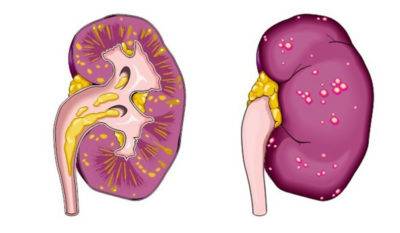
If inflammation of the foreskin is not treated in time, it can lead to pyelonephritis.
Untreated balanoposthitis worsens the situation and leads to the development of complications. Pathogenic bacteria that remain under the foreskin and on the head for a long time can penetrate the urethra, causing pyelitis or pyelonephritis in a child with reduced immunity. The chronic form of this disease leads to atrophy of the foreskin, the appearance of scars, changes in the shape of the penis, and even the development of oncology.
It is possible to restore erectile function! Proven FOLK CARE ... Reviews My story spotenciey.ru
Treatment of PROSTATITIS using a new method To restore the functions of the prostate, you need every day... Website Interview with a doctor bezprostatita.ru
The problem of the small size of the dignity has been solved. The mechanism of erection has been revealed... Official website Recovery bigbigrazmer.ru
Prevention measures
To prevent diseases and malfunctions of the baby’s urinary system, doctors recommend that parents follow certain steps:
- proper, balanced nutrition, rich in vitamins and minerals;
- prevent hypothermia of the body;
- strengthen the body's immune defense with the help of vitamin and mineral complexes;
- dress the baby in clothes made from natural fabrics, especially underwear;
- observe the rules of hygiene;
- teach the girl to use toilet paper after urination to reduce the amount of bacteria on her underwear.
Be healthy!
